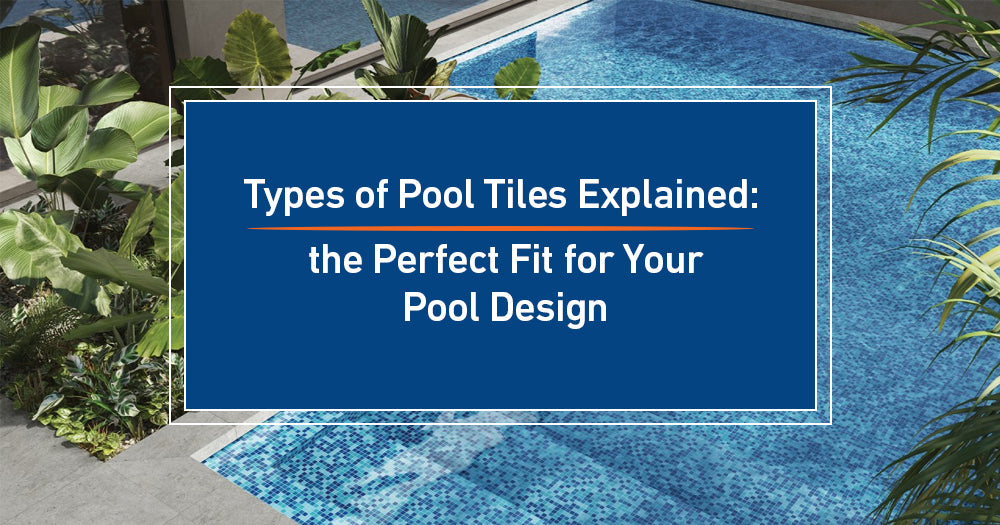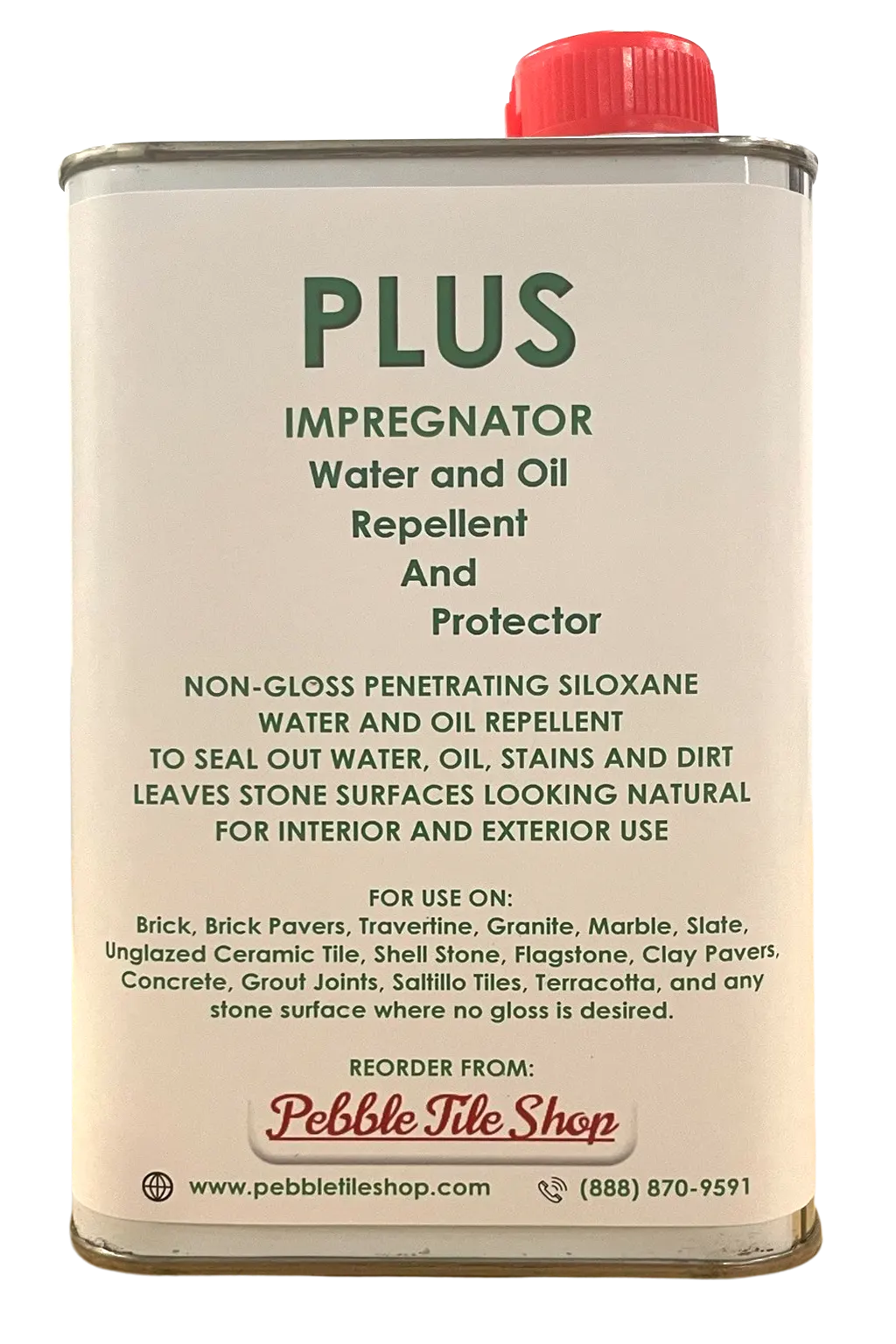When it comes to designing your pool, choosing the right pool tiles is essential to create a space that not only looks stunning but is also functional and durable. Types of pool tiles vary greatly in terms of material, style, and application, and understanding the differences can help you make the best choice for your swimming area.
Whether you're renovating an existing pool or building a new one, the tiles you choose will play a significant role in the aesthetics and functionality of your pool. In this blog, we’ll explore the different types of pool tiles, the benefits of each, and how to select the perfect tile to suit your design preferences and needs.
Why Choose Pool Tiles?
Pool tiles are not only designed to look great, but they are also chosen for their durability and resistance to the harsh conditions of chlorine, sunlight, and water. The right tiles can help enhance the visual appeal of your pool and improve safety by preventing slips. They can also provide a low-maintenance option compared to other finishes, such as paint or plaster, which can wear out over time.
What Are the Different Types of Pool Tiles?
When it comes to types of pool tiles, you’ll find various materials, each offering unique benefits for pool environments. Let’s explore the most popular options to help you make an informed decision.
1. Ceramic Pool Tiles
Ceramic tiles are one of the most common types of pool tiles. They are made from natural clay and are known for their durability, water resistance, and ease of cleaning. Ceramic pool tiles come in a wide range of colors, patterns, and finishes, making them a versatile option for both traditional and modern pool designs.
Advantages of Ceramic Pool Tiles:
- Affordable: Ceramic tiles are relatively inexpensive compared to other materials, making them a great option for those on a budget.
- Easy to Maintain: Ceramic tiles are non-porous, which means they are resistant to staining and mold growth. They are easy to clean and require minimal maintenance.
- Versatile Designs: Available in various colors, sizes, and patterns, ceramic tiles allow you to create a wide variety of pool designs, from classic blue tiles to custom patterns.
Disadvantages:
- Can Chip: While durable, ceramic tiles can chip if heavy objects are dropped onto them.
- Not as Slip-Resistant: Ceramic tiles can be slippery when wet, so they are best used in areas where water won’t constantly pool.
2. Porcelain Pool Tiles
Porcelain tiles are similar to ceramic tiles but are denser, stronger, and more water-resistant. They are an excellent choice for pool areas as they can withstand constant exposure to water and chemicals without losing their appearance or functionality.
Advantages of Porcelain Pool Tiles:
- Highly Durable: Porcelain tiles are known for their strength and resistance to cracks and chips, even in high-traffic pool areas.
- Water-Resistant: These tiles have a low water absorption rate, making them ideal for use in and around the pool.
- Variety of Designs: Porcelain tiles come in a wide range of finishes, including glossy, matte, and textured, offering versatility for different pool designs.
Disadvantages:
- Higher Cost: Porcelain tiles tend to be more expensive than ceramic tiles, but their durability makes them worth the investment.
- Harder to Cut: Due to their density, porcelain tiles can be more difficult to cut and may require professional installation.
3. Glass Pool Tiles
Glass tiles are one of the most luxurious options available for pool finishes. They reflect light beautifully, creating a sparkling, vibrant effect in the water. Glass tiles come in a wide range of colors, finishes, and sizes, making them perfect for creating a stunning focal point in your pool design.
Advantages of Glass Pool Tiles:
- Aesthetic Appeal: Glass tiles are highly reflective, creating a shimmering effect in the water, which enhances the overall appearance of the pool.
- Stain and Fade-Resistant: Glass tiles are resistant to staining and fading, even after prolonged exposure to chlorine and sunlight.
- Easy to Clean: Their smooth surface makes them easy to maintain and resistant to mold and algae growth.
Disadvantages:
- Expensive: Glass tiles are typically more expensive than ceramic or porcelain tiles due to their high-end look and manufacturing process.
- Slippery: Like ceramic tiles, glass tiles can be slippery when wet, so it’s important to consider textured finishes for safety in pool areas.
4. Stone Pool Tiles
Stone tiles are an elegant and timeless choice for pool areas. Natural stones such as travertine, slate, and marble offer a unique, rustic look that is perfect for those who want a more natural, earthy feel for their pool.
Advantages of Stone Pool Tiles:
- Natural Beauty: Stone tiles offer an organic, luxurious look that complements many landscaping styles.
- Durable: Natural stones are highly durable and can withstand extreme weather conditions, making them ideal for outdoor use.
- Variety of Options: Stone tiles come in a range of textures and colors, allowing for custom designs.
Disadvantages:
- Porous: Some natural stones are porous, meaning they can absorb water and stain over time if not properly sealed. Regular maintenance is required to prevent damage.
- Expensive: Stone tiles can be more expensive than ceramic or porcelain options due to the natural materials and labor involved in their extraction and installation.
5. Mosaic Pool Tiles
Mosaic pool tiles are small, typically square tiles that are arranged to create a larger pattern or design. These tiles can be made from ceramic, glass, or stone and are a popular choice for decorative pool features such as pool borders, waterline tiles, and custom designs.
Advantages of Mosaic Pool Tiles:
- Design Flexibility: Mosaic tiles allow for a high degree of creativity in design. You can use them to create intricate patterns, logos, or even pictures on the pool floor or walls.
- Versatile Materials: Mosaic tiles are available in a variety of materials, including glass, ceramic, and stone, so you can choose the material that best suits your design style and budget.
- Great for Waterline: Mosaic tiles are ideal for use as waterline tiles or to create a border around your pool.
Disadvantages:
- Labor-Intensive Installation: Installing mosaic tiles can be time-consuming and may require a skilled installer to ensure the design is consistent and neat.
- Grout Lines: Mosaic tiles have more grout lines than larger tiles, which can make cleaning more challenging, especially if the grout gets stained.
6. Pool Coping Tiles
While not technically used for the pool’s floor or walls, pool coping tiles are an essential part of the pool’s design. Coping tiles are used to cap the edges of the pool and provide a finished, polished look. These tiles are typically made from materials such as stone, ceramic, or porcelain and can help prevent water from spilling over the edge of the pool.
Advantages of Pool Coping Tiles:
- Durability: Pool coping tiles are durable and designed to withstand the outdoor elements, ensuring the longevity of your pool.
- Aesthetic Appeal: Coping tiles help create a clean, finished look and can be chosen to complement the overall design of the pool.
- Safety: Some coping tiles feature non-slip textures, providing added safety around the pool’s edge.
Disadvantages:
- Installation Costs: Pool coping tiles can be more expensive to install due to the precision required in their placement.
- Wear Over Time: Coping tiles can wear down from constant exposure to water and UV rays, especially if not sealed properly.
How to Choose the Right Types of Pool Tiles for Your Pool
Choosing the right types of pool tiles depends on several factors, including your design preferences, budget, and the specific features you want in your pool. Here are a few key considerations to help you make the best choice:
- Design and Aesthetics: Think about the overall look you want to achieve. Do you want a modern, sleek design with glass tiles, or are you leaning towards a more natural, rustic look with stone tiles?
- Durability: Consider how often the pool will be used and the climate in your area. For a high-traffic pool or one exposed to harsh weather conditions, opt for durable materials like porcelain or stone.
- Maintenance: Some materials, such as glass and ceramic, are easier to maintain than natural stone, which may require more upkeep and sealing.
- Safety: Ensure the tiles you choose are slip-resistant, especially for the pool’s floor and waterline areas.
- Budget: Set a realistic budget and explore tile options within that range. While high-end materials like glass and stone can be expensive, there are still great alternatives like ceramic and porcelain tiles that offer excellent value.
Conclusion
The types of pool tiles you choose will have a significant impact on the overall design, durability, and maintenance of your pool. Whether you opt for the timeless beauty of natural stone, the luxury of glass tiles, or the practicality of ceramic and porcelain, there are tiles for every style and budget.
At Tile Hub, we offer a wide variety of high-quality stone mosaic tiles and other pool tile options, allowing you to create the pool of your dreams. Visit Tile Hub here for more information. Tile Hub is a sister company of Pebble Tile Shop, where you can find even more stunning tile options for your home and pool projects.







